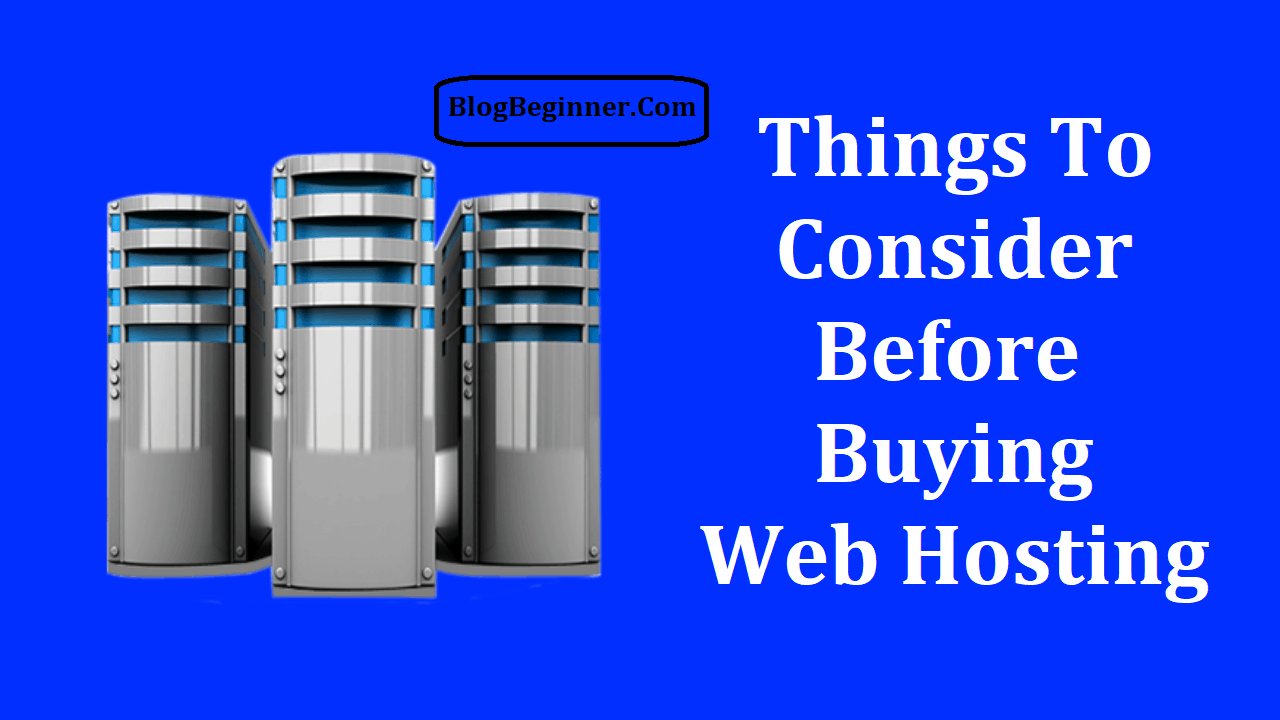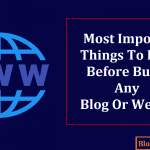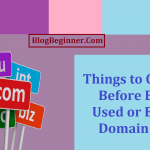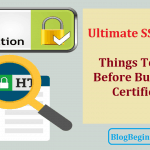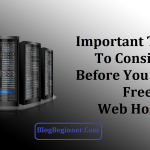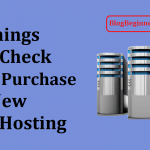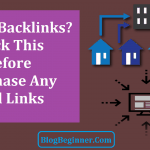A great web hosting provider will ensure the website’s accessibility and security at all times.
Unfortunately, most business owners fail to realize the importance of web hosting, and they often go for the cheapest web host available.
What the entrepreneurs fail to see is that even with the best and the most responsive website design, poor web hosting impacts on their site’s accessibility and traffic. The chosen web host determines the website’s loading speeds, access to customer services, and security features among others.
On the other hand, if you look at the entrepreneurs that take time to evaluate their potential web hosting plans, you realize that their websites are always available and that they register the lowest downtime.
Still thinking that the cheapest shared web hosting solution is all your business needs?
Let’s look at the effects of choosing the wrong web hosting provider:
Data collected by Forbes indicate that at least 30,000 websites get hacked every day.
However, the most interesting bit of this report is the fact that among the hacked websites lie renowned websites.
Even though this puts across the fact that hackers are using more sophisticated technologies to access the sites, it also points to the fact the biggest number of companies hacked used less than satisfactory web hosting solutions/ plans.
Great web hosting plans mean that the companies offering web hosting will offer regular (often daily) backups which keep your data secure in a remote server.
So, even with a security breach, you wouldn’t need to worry about the loss of data.
While websites are designed to give web visitors 24/7 access to the website, when your website is down because of server issues and because of the loss of data, you lose money.
The worst bit is that the loss happens every second your site is inaccessible.
Since you do not want to deal with the preventable loss of revenue or security breaches, here are some of the things you should consider when looking for a web hosting plan.
Keep in mind that downtime means the search engines cannot access and index your web content.
- Determine your hosting needs
You cannot choose the best web host or the best web hosting plan without detailed knowledge of your needs.
Therefore, before your research on web hosting plans and features, go back to the drawing board and look at your website’s goals then get back to the search.
Before you click on Buy Plan, what is the type of website you are building?
Do you require Windows applications?
Should the host support a specific script like PHP?
What is the expected web traffic volume?
By asking these questions, you can easily choose the best plan that will encourage the growth of your site.
In simpler terms, the search for the best web hosting plan depends on the resources required by your website.
If running a small business website or a personal blog, your needs will be lower than what you will need to run a fully-fledged business website.
With hosting plans differentiated by the price and the features offered, you want to make sure the features you are paying for will satisfy your needs.
For example, if your website will perform well on a VPS web hosting server, you might find that you have to choose between the intermediate or the super-premium plan.
However, if you are looking for a web hosting plan for a new blog, you could start from the shared web hosting plans.
The best part about web hosting is that the service is scalable allowing you to adjust and move to a higher plan as and when the needs of your business change.
- Subscription Period
Looking back at your company’s needs and the unpredictability of the future web hosting environment, you need to ensure that you sign up for a reasonable web hosting plan.
Don’t fall for web hosts forcing you to sign up for unbelievably long contracts.
- Signup and the renewal price
Most web hosts provide the cheapest signup deals.
Even though these deals are extremely alluring, you need to make sure that the signup fee is not 80 percent off only for your monthly renewal fee to be more than double the signup fees.
For clarity, check the terms of service to confirm the hosting rates and the actual features provided in each plan.
- Return Policies and Free Trial Periods
Does the host provide a free trial period?
Are you guaranteed your money back if you choose to opt out of the plan during the trial period?
Does the host charge cancellation fees?
What’s the hosting company’s policy on refunds at the end of the trial period?
- Uptime Scores and the Server’s Reliability
To reiterate what we mentioned above, your website should be running 24/7.
This means that your web host should also be available 24/7 to all your site’s visitors from every part of the world.
The web host must offer stable hosting services.
Their network connections and the servers must be stable at all times.
When shopping for web hosting plans, keep in mind that a 99.5 percent uptime is considered normal and you should avoid any site that offers an uptime below 99 percent.
If, on the other hand, you require web hosting offering a 99.99 percent uptime, then you have to choose the premium hosting plan.
Now, we all know that the web hosts sometimes lie about their uptime rates.
So for transparency, you should read user reviews.
You could also track their uptime by using server monitoring tools.
- Site backup
As mentioned above, you need to look for hosting from companies offering the best security features.
To prevent data loss, the selected hosting plan must provide regular (daily) backups.
The backup offered should be full.
Also, check if the site’s backup can be done from the control panel manually and if you can restore your backup files without the help of the host.
- Multiple Add-on domains
Since domain names are inexpensive, it is almost impossible to resist the temptation to buy more than one domain.
But, will the web hosting plan you are considering hold more than one domain?
With more than 80 percent of GoDaddy and the NameCheap voters owning more than five domains and others having at least 50 domains, you need to choose a web host that allows at least 50 domain add-ons.
- Server Upgrade options
If your website doesn’t attract high traffic volumes, shared hosting might be your best option.
Under shared web hosting, there are several plans for you to choose from, and the best bit is that the shared hosting services are quite powerful nowadays.
But as your website grows, you might want to upgrade to a more powerful plan to handle your growing database and content needs.
Before you sign up for a hosting plan, ensure that you can upgrade to a better plan when the time comes.
- e-commerce functions
If yours is an e-commerce site or if you will be using a cart software, ensure that your web host has the right hosting plan to support your e-commerce site.
For instance, you might need a dedicated IP, SSL certification, as well as a one-click shopping cart software.
- FTP Access
When it comes to moving large files to and from your website or the server, File Transfer Protocols are essentials.
Ensure that your hosting plan features FTP.
- One-Click Installer
This is an important feature that you should look out for in your web hosting plan.
You need the one-click installer to help you install functions like Drupal, Joomla or WordPress.
The installers represent simple installation wizards that will make your life so much easier.
- .htaccess File Access
This is a powerful access file that gives you the power to make admin changes throughout the site.
The access controls redirects, password authentication, and password management among other functions.
So, unless your web host is the WP Engine, your plan must have this access feature.
- Disk Space/ Data Transfer Capacity
Most of the web hosting plans you find will promise you unlimited disk storage or data transfer bandwidth, but do not fall for these ads.
These are marketing gimmicks.
And if you think that you really need space, but you cannot afford to pay more, take advantage of Google Docs or Flickr for your documents and images, or YouTube/ Vimeo for videos.
You also have cloud storage.
So, if you are looking for web hosting for your new blog, don’t let space stop you.
- Hosting Control Panel
The web host should provide you with the most user-friendly web hosting control panel.
The most common control panel is cPanel, and it ensures that you are not 100 percent dependent on the tech support staff who might not be available 24/7.
- Customer support
Does the hosting plan include 24/7 access to phone or live chat for technical support?
Is there an SOS button to ask for immediate help?
- Account Suspension Limitations
Did you know that web hosting companies can pull the plug then suspend your account if you use up more than acceptable CPU power or if you violate the terms of your agreement?
So, before you sign up or pay for a hosting plan, reevaluate the hosting terms/ rules.
When you know your limits, you can tell more about the generosity and the transparency of your host.
- Eco-friendliness
With web servers producing at least 630kgs of CO2 while consuming up to 1000KWh energy every year, you must check your web host’s eco-consciousness. Choose green web hosts.
- Email Functions
Would you like to host your email accounts with your website?
If yes, check if the hosting plan you are interested in offers email@yourdomain function.
- Server’s Responsiveness
How long does it take from the time someone enters your domain name to the time the request gets acknowledged by the server?
- Reputation
Is the web host as good as marketed?
Are other users happy with their plans?
